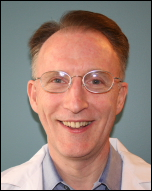The article about Pediatric Associates in CA has a nugget with a potentially outsized impact: the implication that VFC vaccines…
An HIT Moment with … Garrison Bliss
An HIT Moment with ... is a quick interview with someone we find interesting. Garrison Bliss, MD, is president of the Qliance Medical Group of Washington, a medical practice that charges patients a monthly fee ranging from $49 to $129 for unrestricted access to its physicians and nurse practitioners.
Describe Qliance’s business model, how it works for patients, and how the concept fits into the debate about healthcare reform.
 Qliance’s business model is a sincere attempt to address the central issues in the breakdown of healthcare — the gradual and inexorable destruction of primary care, the growth of insurance distorted medical care, and the loss of personal, unhurried medical visits.
Qliance’s business model is a sincere attempt to address the central issues in the breakdown of healthcare — the gradual and inexorable destruction of primary care, the growth of insurance distorted medical care, and the loss of personal, unhurried medical visits.
In primary care, insurance reimbursement systems have consistently undervalued and underpaid primary care providers. Over the last 50 years, this has translated into primary care physician practices mowing through 25-35 patients a day, much to the detriment of both the physicians and the patients.
By using an insurance vehicle for a low-reimbursement specialty, the ratio of payment to the cost of getting paid is about 2 to 1 (meaning that 50% of primary care money is burnt up in the transaction costs, before even considering overhead costs of the medical practice itself). This has been disastrous. The combination of poor reimbursement and rapid fire low value medical has made primary care a dying profession and has put patients in danger.
When we eliminate the insurance middleman, the quality of life for both doctor and patient improve dramatically. Patients also become the source of physician income and the appropriate overseers of our work. This makes it possible for doctors to truly be accountable to their patients. Service improves, price declines, and physician/patient satisfaction makes a rapid comeback. There is also ample scientific evidence that medical care based upon a strong primary care system is less expensive, more effective, and safer than a care system dominated by specialist care.
What does the "medical home" concept mean to patients and their doctors?
The medical home means that patients know who their doctor is and their doctor knows who they are. It harkens back to better days when medical care was less technical and more personal. It also means that patients have someone they can trust helping them with difficult decisions, someone who isn’t selling them (or their insurance company) an overpriced invasive test, someone who can provide insight and perspective without a vested interest in cranking up their medical care expenses.
In the case of Qliance, it also means that they have a place to go on weekends, mornings, and evenings that isn’t an emergency room, that has their records, and that will do what needs to be done most of the time without breaking the bank.
What is the advantage for your doctors and what technologies do you use to support them?
The biggest boon for our doctors is the opportunity to practice real medicine at a much more leisurely pace without inviting bankruptcy.
Medicine is perhaps the most rewarding of all professions, but it can also be a dismal disappointment to go home at the end of a breakneck day knowing that you short-changed every patient you saw. We eliminate this problem.
We have many technologies — a paperless office; a secure EMR with access from work, home, or anywhere on the Internet; a digital X-ray system with Internet-based radiology backup; an on-site generic formulary; a digital phone system; patient access to physicians via phone/cell/e-mail; a direct digital interface between our lab and EMR; a Web-based answering service designed to get you in contact with someone who can actually help you after hours, etc.
Can the concept be scaled up or replicated?
We believe it can and we intend to prove it.
What are the most important lessons learned from Qliance’s experience?
- There is enormous power in doing the right thing, but there is no reason to believe that it will be easy.
- It is hard to go wrong if you build something that works for both patients and physicians.
- If you criticize entrenched interests, you can expect to be attacked by them.
- You will be misunderstood. If you can’t handle criticism, you can’t do anything this revolutionary.
- There is nothing more enlivening than doing the impossible. It is even more fun to do it well.

Congratulations Dr. Bliss. I recall working with your practice several years ago as a vendor to help you get setup prior to your opening. I was intrigued by your concept and I’m glad to see it’s working.
To invest in an EMR, LIS, Xray, Lab equipment and an office in a Seattle high-rise on an unproved business model definitely isn’t for the weak of heart.
Only one comment…..I wonder WHY!!!!